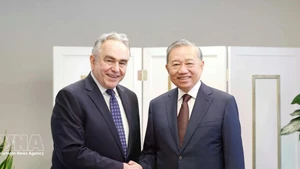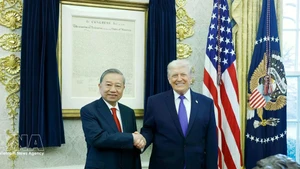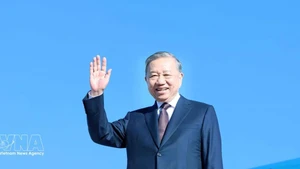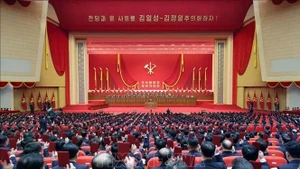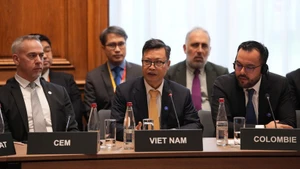During his meeting with President Marcos Jr., Chinh congratulated the Philippines on assuming the ASEAN Chairmanship in 2026 and commended the country’s recent socio-economic achievements, particularly in implementing the “Build Better More” programme, maintaining economic growth, controlling inflation, and creating jobs.
The Philippine President affirmed that Viet Nam remains one of the Philippines’ important partners in Southeast Asia. He said hopes that the two countries would continue close coordination to advance the Viet Nam–Philippines Strategic Partnership across all fields, from politics and economy to defence, security, and cooperation at multilateral forums, toward the 50th anniversary of diplomatic relations in 2026.
Both leaders noted with satisfaction the positive development of bilateral relations, particularly since President Marcos Jr.’s state visit to Viet Nam in January 2024. They agreed to work closely to develop an action programme to implement the partnership in the new period.
Prime Minister Chinh suggested enhancing high-level and all-level delegation exchanges, promoting cooperation through Party and parliamentary channels, and effectively implementing bilateral mechanisms. He also proposed that both sides tap into potential cooperation areas such as digital transformation, food processing technology, high-tech agriculture, and infrastructure; explore supply chain cooperation based on each country’s strengths, including developing an ASEAN regional ecosystem for electric vehicle and battery production; and strengthen rice trade cooperation toward signing a long-term agreement to help ensure food security.
President Marcos Jr. welcomed Viet Nam’s efforts to combat illegal, unreported, and unregulated (IUU) fishing, affirming that the Philippines would coordinate and assist Viet Nam in enhancing its IUU prevention capacity and support efforts to have the European Europe’s “yellow card” removed.
The two leaders also agreed to strengthen cooperation and maintain solidarity and unity within ASEAN; promote ASEAN’s central role in addressing regional and international issues, including the sustainable management and use of the Mekong River’s water resources; and ensure peace, stability, security, safety, and freedom of navigation and overflight in the East Sea/South China Sea in line with international law, including the 1982 UN Convention on the Law of the Sea (UNCLOS). They also reaffirmed the need to fully and effectively implement the Declaration on the Conduct of Parties in the East Sea/South China Sea (DOC) and work toward an early conclusion of a Code of Conduct (COC) in the waters.
During his meeting with his Thai counterpart, Prime Minister Chinh extended his deepest condolences over the passing of Her Majesty Queen Sirikit The Queen Mother and expressed appreciation for Thailand’s continued role as Viet Nam’s largest trading partner and second-largest investor in ASEAN.
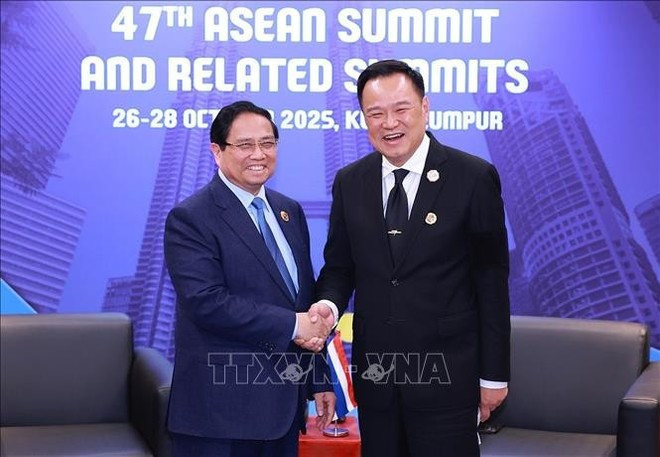
PM Anutin affirmed that Viet Nam is one of Thailand’s key partners in Southeast Asia and expressed his desire to work closely with Prime Minister Chinh to further strengthen the comprehensive cooperation between the two countries.
Both leaders expressed satisfaction with the growing Viet Nam–Thailand relationship, particularly following the official elevation of bilateral ties to a Comprehensive Strategic Partnership in May 2025. They agreed to coordinate closely in developing an action plan for the new period of cooperation.
Prime Minister Chinh proposed that the two sides work toward raising bilateral trade turnover to 25 billion USD in a balanced manner by facilitating greater market access and resolving trade obstacles. He also suggested exploring joint ventures to control prices, expand into new markets, and strengthen mutually beneficial cooperation, especially in adopting advanced technologies in oil and gas and liquefied natural gas exploitation.
The two PM emphasised the importance of implementing the “Three Connectivity” strategy based on mutual benefit, focusing on supply chain connectivity, human resources development, and transport and tourism linkages. They agreed to soon establish a joint working group and develop an action plan to realise the strategy.
On security cooperation, Prime Minister Chinh reaffirmed the importance of enhancing coordination and information sharing in the fight against terrorist and reactionary organisations, while ensuring that no individual or organization is allowed to use one country’s territory to act against the other.
The two sides agreed to strengthen cooperation in education and training, people-to-people exchanges, and locality-to-locality partnerships; and to promote cultural exchange programmes, particularly in 2026 when the two countries celebrate the 50th anniversary of diplomatic relations, helping deepen mutual understanding and friendship between their people, especially among the younger generations.
Prime Minister Anutin welcomed Viet Nam’s efforts to combat IUU fishing and affirmed that Thailand would continue cooperating and supporting its capacity-building in this area, aiming for the removal of the EU’s “yellow card.”
The two leaders also agreed on the importance of maintaining cooperation, unity and solidarity within ASEAN; promoting ASEAN’s central role in addressing international and regional issues, including the sustainable management of the Mekong River’s water resources; ensuring peace, stability, security, and freedom of navigation and overflight in the East Sea/South China Sea in accordance with international law, including UNCLOS 1982; fully and effectively implementing the DOC, and working toward the early adoption of a COC.
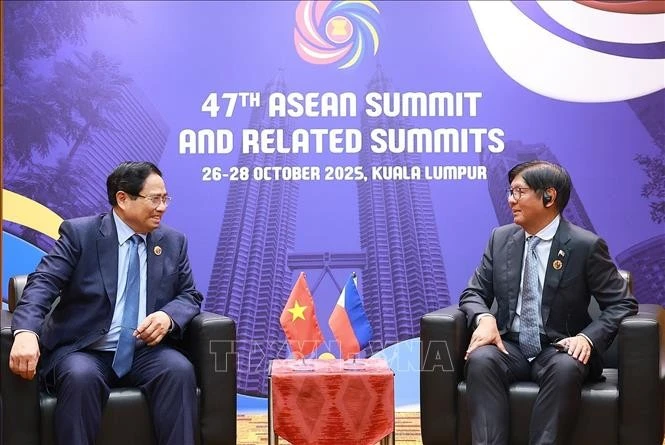

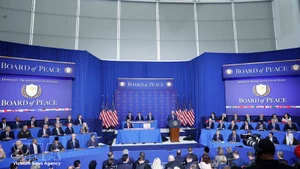
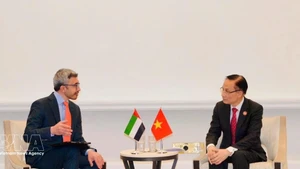
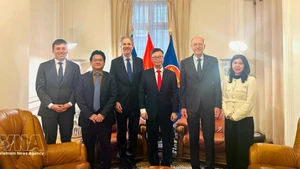
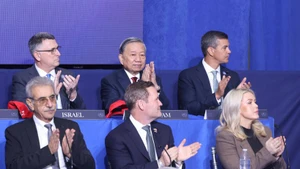
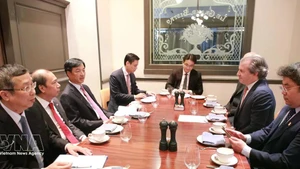
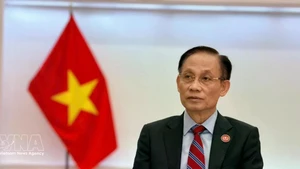
![[In pictures] Party General Secretary To Lam meets US President Donald Trump](https://en-cdn.nhandan.vn/images/dcd63867a0eed4c7753eb4bfb346593abc1ce710dfab8ad1b9aebd75ea6bf930b2ea13e4664779d689ba40aadd80f76d5d05d1208720fd7b0d811ace3a3297321c78cf738400e136e3f2d8790b24d43646e46edbe19517144a88f6ffb0d528f153574a7109328cc0949e4a4c16433c2ff751541639eefe4490518227264cbf8e/vna-potal-tong-bi-thu-to-lam-gap-tong-thong-hoa-ky-donald-trump-8599945.jpg.webp)
